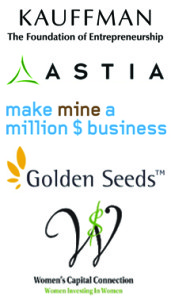Grow Your Business
In September (2010), Mark Henricks said that it was time to stop giving women entrepreneurs special help.
He called into question the purpose of government and corporate assistance provided to women business owners and claimed that the help they receive is another set of privileges given to a politically powerful special-interest group.
Although it’s true that women start more than half of all new U.S. businesses, it’s also important to note that they get less than 10% of venture capital to help scale and grow their businesses from micro-enterprises into large scale organizations — and that’s just in the United States!
The percentage of women-led businesses across the globe and the seed capital they receive varies from nation to nation, but does not approach the still new and developing statistics of the United States.  Fortunately, there are organizations large and small that do not share Mr. Henricks’ views on this topic. Just a couple of weeks before Mr. Henricks’ blog post, the Ewing Marion Kauffman Foundation announced a $500,000 grant to Astia, a global nonprofit organization that provides programing to ensure women-led businesses gain access to capital, and achieve and sustain high growth. Astia was founded by entrepreneurs for entrepreneurs, and its 700-member Advisor Network includes more than 100 former and current CEOs and 125 investors.
Fortunately, there are organizations large and small that do not share Mr. Henricks’ views on this topic. Just a couple of weeks before Mr. Henricks’ blog post, the Ewing Marion Kauffman Foundation announced a $500,000 grant to Astia, a global nonprofit organization that provides programing to ensure women-led businesses gain access to capital, and achieve and sustain high growth. Astia was founded by entrepreneurs for entrepreneurs, and its 700-member Advisor Network includes more than 100 former and current CEOs and 125 investors.
 In addition to large-scale support provided by organization such as the Kauffman Foundation, Astia, and Make Mine a Million (as well as the more than 100 women’s business centers in the United States), there are eight American angel investor funds (or networks) comprised solely of women investors who invest in women-led businesses – organizations such as Golden Seeds and the Women’s Capital Connection.
In addition to large-scale support provided by organization such as the Kauffman Foundation, Astia, and Make Mine a Million (as well as the more than 100 women’s business centers in the United States), there are eight American angel investor funds (or networks) comprised solely of women investors who invest in women-led businesses – organizations such as Golden Seeds and the Women’s Capital Connection.
Internationally, women are learning about and starting their own angel investor networks, including in countries like Egypt where I recently spoke with a group of women exploring angel investing.
The bottom line is this, women-led businesses are not a special interest group.
We are a significant engine of the global economy, and creator of new jobs in tough economies.
We are a significant engine of the global economy, and creator of new jobs in tough economies around the world.
While the number of women-owned businesses continues to increase, their access to capital has not increased at the same pace. The good news is that there is a growing number of organizations working to change this inequity, and opportunities for female entrepreneurs are increasing every day.
How will you grow your business? How have you grown your business? What has been your experience as a female entrepreneur?